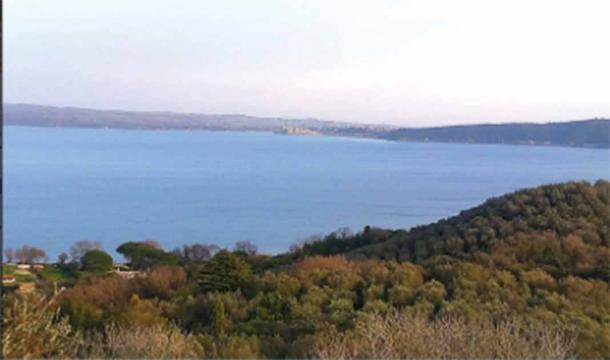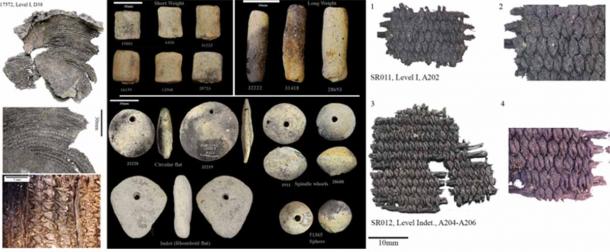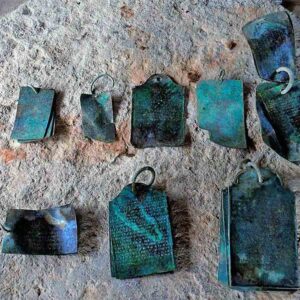Up to date
7 June, 2023 – 18:34
Sahir
Early Neolithic Settlement Discovered Beneath the Waters of Lake Bracciano
- Learn Later
La Marmotta, an historical lakeshore settlement submerged in Lake Bracciano close to Rome, Italy, has captivated underwater archaeologists since its discovery in 1989. Now, archaeologists have positioned some well-preserved artifacts that shed mild and perception into Neolithic and Bronze Age societies, together with a settlement from the Early Neolithic Interval! This settlement reveals a neighborhood engaged in a thriving farming economic system, and has been positioned roughly 300 meters (984 ft) from the fashionable shoreline.
A Treasure Trove of Artifacts within the depths of Lake Bracciano
Current excavations have yielded a treasure trove of artifacts, together with textiles, basketry, and cordage, shedding mild on the technological prowess and craftsmanship of Neolithic societies, as per the research revealed within the current version of Antiquity. All in all, 28 fragments of twine and two lengths of thread have additionally been recognized, along with 43 fragments of basketry, a few of which nonetheless comprise meals residue.
“The assemblage paints a extra full image of Neolithic societies’ technological experience and talent to take advantage of and course of plant supplies to provide a various vary of crafts,” the analysis staff writes within the research. “Archaeological analysis on Circum-Alpine lake or pile dwellings has supplied unprecedented perception into Neolithic and Bronze Age societies,” they added.
Located within the area of Lazio, Lake Bracciano originated from volcanic and tectonic exercise that led to the collapse of a magma chamber, forming the present-day lake. La Marmotta’s origins hint again to the Early Neolithic Interval when a settlement was established alongside the lakeshore. Over time, the lake’s water ranges rose, in the end submerging the settlement at a depth of 11 meters (36 ft), studies Heritage Daily.

Lake Bracciano. (Museo delle Civiltà-Mario Mineo/Antiquity Publications Ltd)
La Marmotta: A Extremely Superior Farming and Textile Financial system
Underwater surveys of La Marmotta have unveiled a outstanding sight—1000’s of wood piles or help posts scattered throughout the lakebed. The association of those piles reveals a minimal of 13 parallel home buildings that after stood on the Neolithic shore. Earlier research have recognized stays of domesticated animals equivalent to goats, sheep, cattle, pigs, and canines, alongside a number of wild mammal species together with purple deer, roe deer, aurochs, and purple fox.
- What Archaeology Tells US About Pre-Roman Cultures
- Civita di Bagnoregio – Italy’s Most Enchanting and Surreal Historical City Is Dying
Regardless of ongoing excavations, it’s estimated that solely round 25 p.c of the La Marmotta web site has been explored. The remaining archaeological stays maintain immense potential for additional insights into the lives of its historical inhabitants. In depth investigation is required to determine the complete extent of this settlement, studies Arkeonews. What might be affirmatively ascertained is their capability to course of plant supplies into a various vary of crafts.
The staff from the College of Copenhagen is at the moment analyzing the textile fragments found at La Marmotta. These fragments, believed to be comprised of plant fibers, have been recognized as flax fibers by a meticulous examination utilizing a binocular microscope. Flax, a broadly utilized materials for textile manufacturing till the nineteenth century AD, showcases the early mastery of historical cultures in creating materials.
The presence of 78 loom weights, three spindle whorls, and 34 full or fragmented wood instruments additional attests to the traditional artwork of weaving. These instruments performed a significant function in tightly packing every new weft thread throughout the weaving course of.

Artifacts from La Marmotta. (Left) Basket with meals stays. (Heart) Spindle whorls and loom weights (Proper) Textile fragments. (J.F. Gibaja and Museo delle Civiltà-Mario Mineo/Antiquity Publications Ltd)
The excavation at La Marmotta has additionally yielded a set of wood instruments related to weaving, some full, some fragmented. Some had been doubtless used throughout the weaving course of to make sure the correct insertion and packing of weft threads, and embrace beaters or battens used to press the weft threads into place and comb-like instruments for separating and aligning the warp threads.
Why was La Marmotta deserted? Some consultants consider {that a} fast rise within the lake’s water stage might have compelled the inhabitants to depart unexpectedly, forsaking their possessions, together with instruments, food-preparation vessels, and even canoes. The explanations behind this mass exodus stay a subject of nice curiosity for archaeologists and historians.
- Unraveling the Secrets and techniques of Bronze Age Thread: Textile Reveals Extremely Superior and Complicated Course of Used 3,800 Years In the past
- Current Textile Found in Nepal Sheds Mild on How Far South the Silk Highway Really Prolonged
“The restricted extent of the image that we will normally reconstruct is made clear by the settlement of La Marmotta. Right here, the wonderful preservation of wood buildings and objects of assorted perishable supplies creates a a lot fuller understanding of the technical complexity of those early farming societies, even perhaps pointing to the existence of craft specialists,” concluded the authors of the research.
High picture: Underwater excavation of the positioning of La Marmotta in Lake Bracciano. Supply: Museo delle Civiltà-Mario Mineo/Antiquity Publications Ltd
By Sahir Pandey
References
Buyukyildirim, O. 2023. Uncommon textiles and dwellings found within the submerged Neolithic settlement close to Rome. Accessible at: https://arkeonews.net/rare-textiles-and-dwellings-discovered-in-the-submerged-neolithic-settlement-near-rome/.
Milligan, M. 2023. RARE TEXTILES, BASKETRY AND CORDAGE DISCOVERED AT SUBMERGED NEOLITHIC SETTLEMENT. Accessible at: https://www.heritagedaily.com/2023/06/rare-textiles-basketry-and-cordage-discovered-at-submerged-neolithic-settlement/147559.
Mineo, M., et al. 2023. Textiles, basketry and cordage from the Early Neolithic settlement of La Marmotta, Lazio. Antiquity. Accessible at: https://doi.org/10.15184/aqy.2023.21.





